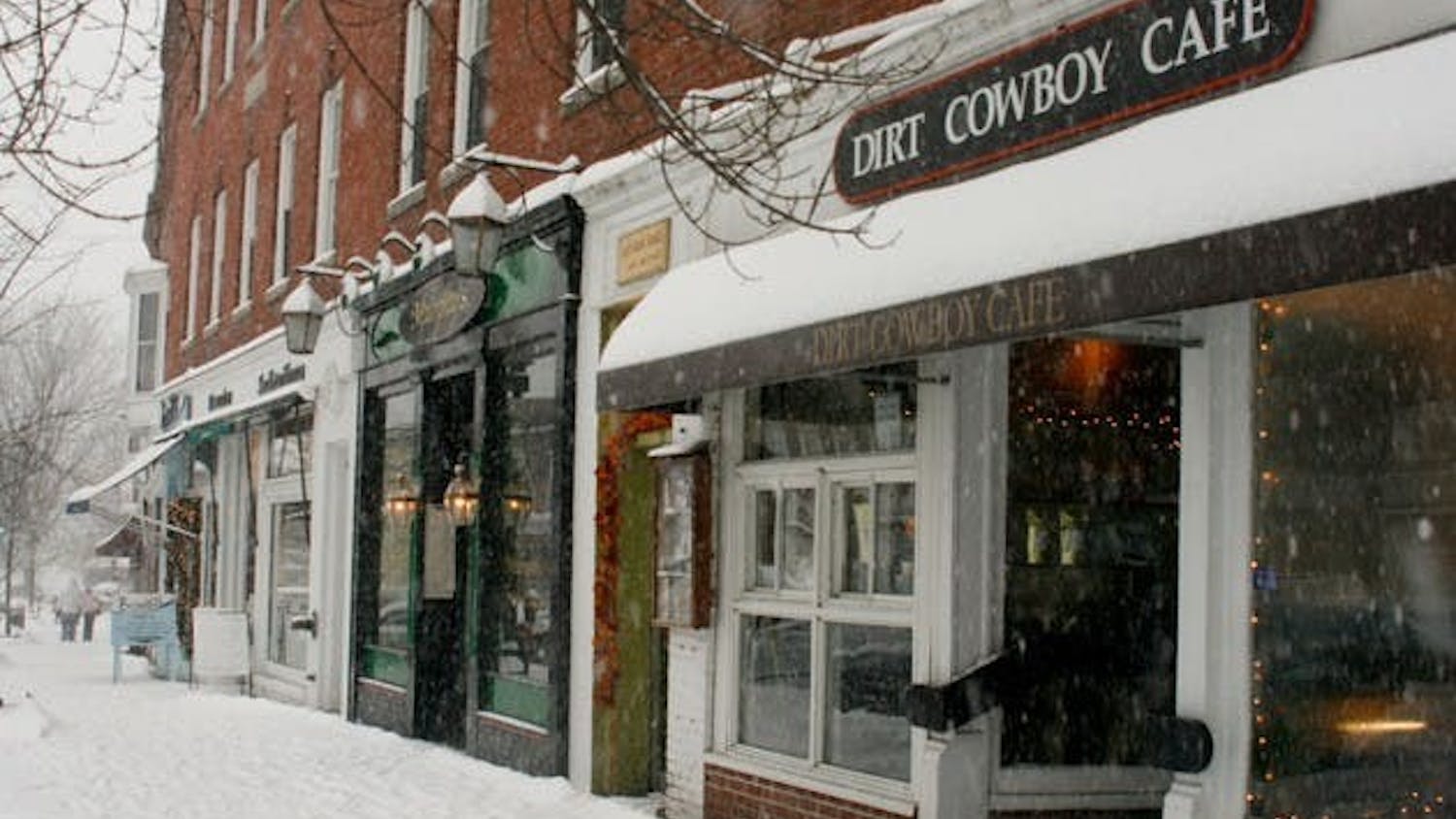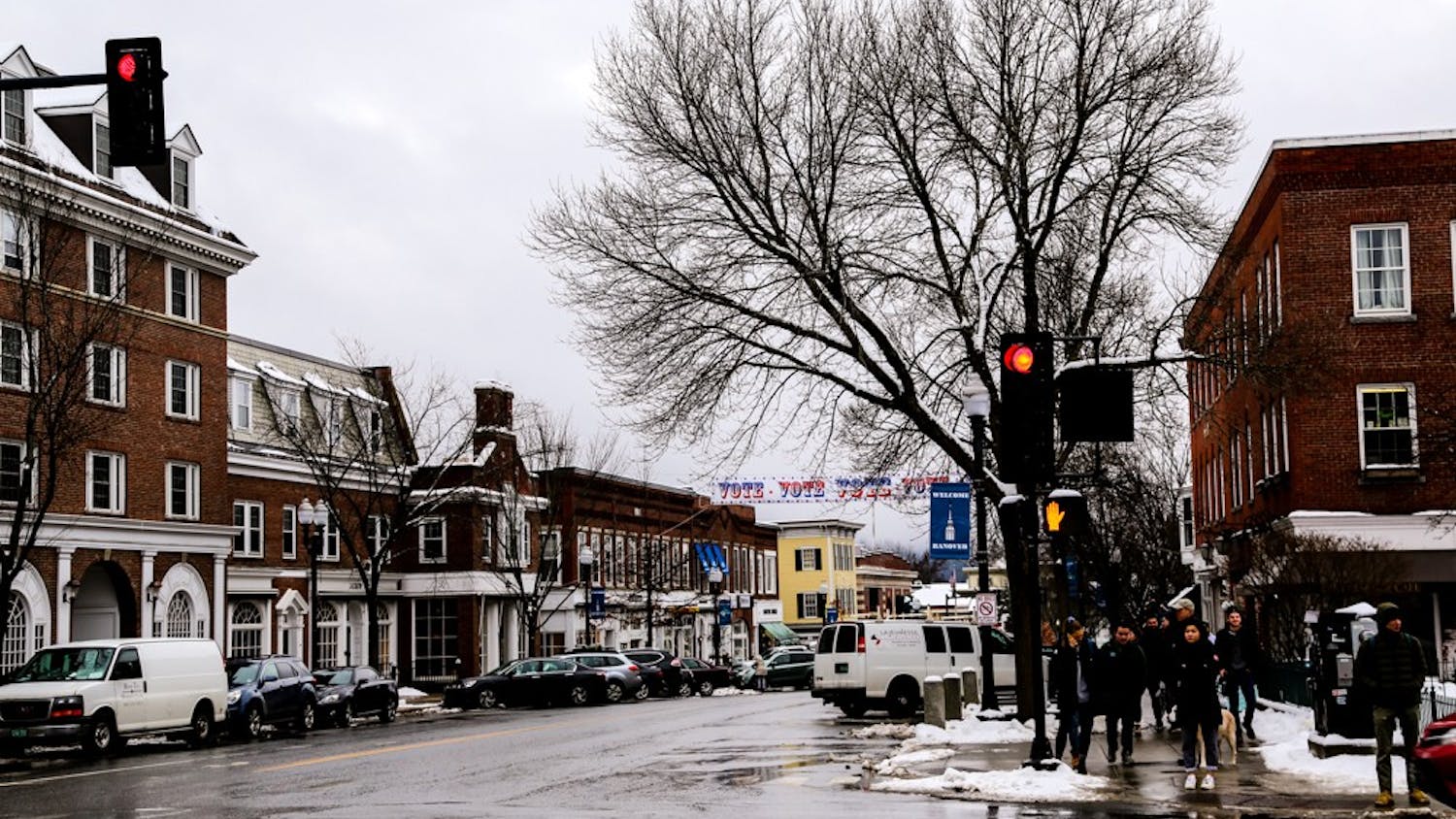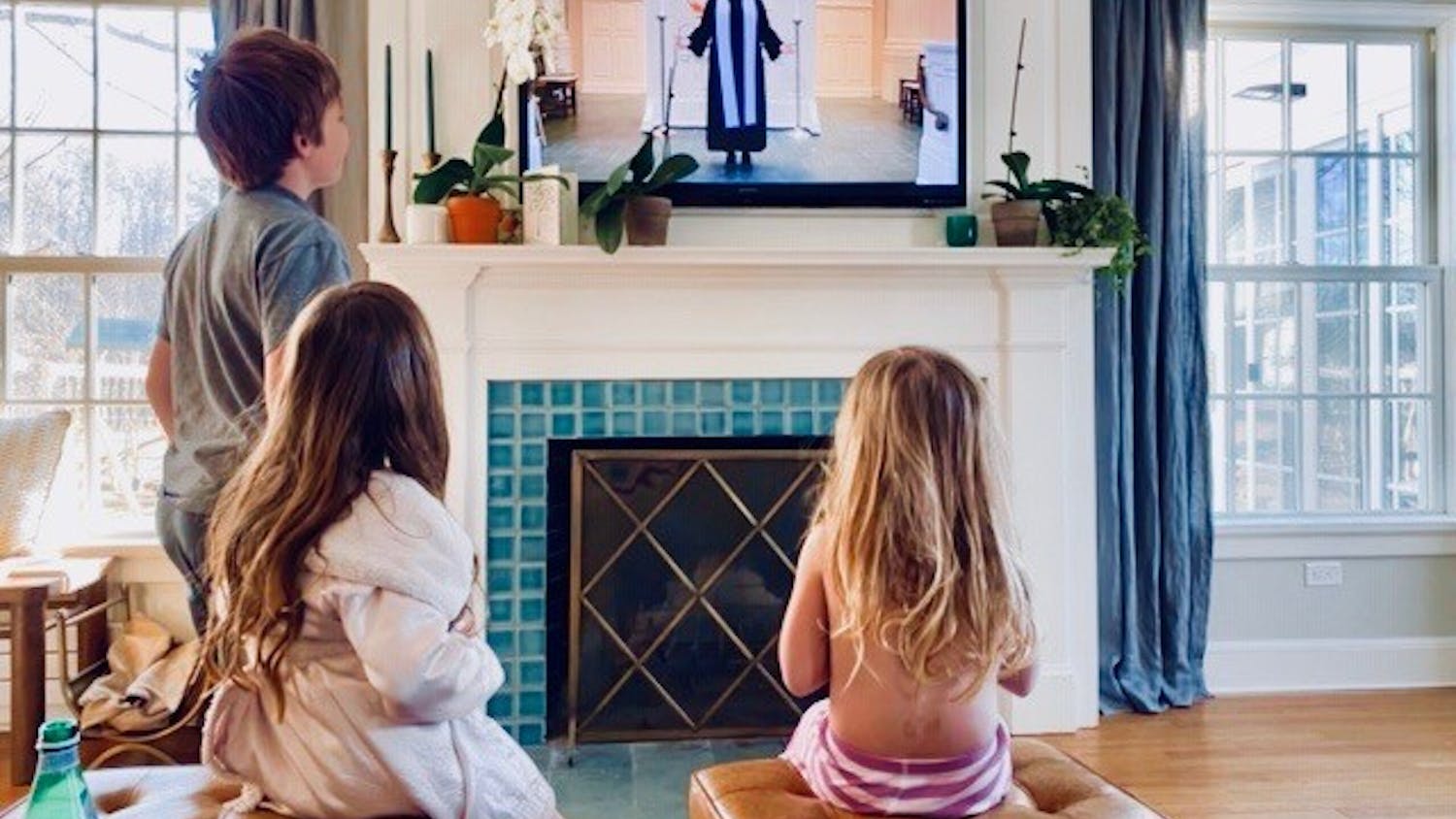As the COVID-19 crisis continues to unfold in New Hampshire and across the country, businesses in Hanover have struggled to adapt to an uncertain environment. While some Hanover businesses remain closed, others have been open for takeout, delivery or, most recently, outdoor dining.
When New Hampshire Gov. Chris Sununu (R) first mandated the closure of dining rooms on March 16, many restaurants and cafes, including Tuk Tuk Thai Cuisine, Base Camp Cafe, Jewel of India and Umpleby’s Bakery & Cafe, shifted to a takeout and delivery model, while Pine offered takeout options without delivery.
More recently, in accordance with Sununu’s May 1 announcement allowing restaurants to open outdoor dining areas on May 18 as long as tables were six feet apart, some Hanover restaurants, including Boloco, Lou’s Restaurant & Bakery, Murphy’s on the Green, Pine and Umpleby’s, have begun offering socially distanced outdoor dining to patrons.
Other restaurants, however, remain temporarily closed — among them Molly’s and Market Table. Morano Gelato has closed permanently, as has Dartmouth’s King Arthur Flour cafe in Baker-Berry Library, though KAF closed for reasons unrelated to the pandemic.
Murphy’s owner Nigel Leeming said that before Sununu’s announcement, he went to the Hanover town government along with Lou’s owner Jarett Berke and several other local restaurant owners to request that restaurants be allowed to offer outdoor dining options. Now that outdoor dining is permitted, Leeming said that on Tuesday, Murphy’s started offering a full-service street food menu. Customers are able to sit under a tent pitched on the five parking spots in front of Murphy’s on Main Street, he said.
“We're going to serve right through dinner until about eight o'clock, and then there are going to be drinks … you know, festive, kind of like you see in coastal towns,” Leeming said. “But we are also ... going to be practicing the highest degree of CDC and state rules about reopening just to protect our employees and the public.”
According to Leeming, when restaurants were first ordered to close in March, Murphy’s decided to forego offering takeout and delivery as an alternative for customers, instead shutting down the business entirely. For mainly dine-in restaurants like his, Leeming said, it’s much more difficult to transition to a takeout and delivery model than it is for restaurants that already relied heavily on these services. Leeming said that Murphy’s had been without a revenue stream throughout its closure.
“We got crushed, and the word is ‘crushed.’ And this is happening all over the U.S.,” Leeming said.
Leeming added that the pandemic has compounded other challenges that face Main Street businesses like his.
“During the 2008 financial crisis, Hanover took a hit, and it seems like Main Street [has] always had to reinvent itself over the last 20 years or so because of the malls and then Amazon and financial crises,” Leeming said.
Anthony Barnett — owner of the primarily dine-in restaurants Molly’s and Jesse’s Steakhouse — said that over one weekend early on in the pandemic, his restaurants saw sales drop 70 percent. After Sununu shut down indoor dining, Barnett and his staff spent three days trying to adapt to a curbside pickup model, but this approach soon became unsustainable.
“There just wasn’t enough business to make it work,” Barnett said. “We were losing more money by being open than we were if we just closed.”
After making the decision to furlough staff and close until further notice, Barnett’s restaurants donated the food in their pantries and started helping team members file for unemployment.
While Barnett has scrambled to secure loans that will help pay fixed expenses, he said that the current federal Paycheck Protection Program loan regulations, which require 75 percent of the loan to be put toward employee pay, prevent him from being able to use PPP funds now that his restaurants are closed and his staff aren’t working.
“I am just sitting on the cash hoping that the legislation changes to make that loan more forgivable,” Barnett said.
Molly’s and Jesse’s are not currently open for outdoor dining. Barnett explained that several variables — including the safety of customers and his staff, which he said is his top priority — will play into his decision regarding when to reopen.
“Unemployment benefits for some people are more than they were making at the restaurant. So it’s hard to take away those benefits, especially for tipped team members because the foot traffic isn’t going to be what it was,” Barnett said.
Barnett suggested that, with schools still closed, opening outdoor dining could pose difficulties for employees with children at home. “We could be open right now for outdoor seating. But we wanted to wait at least until our team members who are parents are done with remote learning,” Barnett said.
Surendra Thapa, who co-owns Base Camp Cafe, said that the restaurant has had to furlough some of its employees indefinitely, adding that he has seen the business’s gross revenue drop by 85 percent. According to Thapa, the restaurant typically relies on its revenues from the busy months of January to June to cover the expenses of much slower summer months, but with most students off campus for an unknown amount of time, the future is uncertain.
“At this point, we are just opening for the reason of paying the utility bills … and paying the staff,” Thapa said. “We are just trying to survive.”
Looking toward the future, Thapa anticipates hurdles in the reopening process, including the challenge of rehiring furloughed staff whose government benefits exceed their pay. He said that he also foresees staffing and space issues, as well as other logistical difficulties of moving some of his business outdoors. Even if state regulations soon allow for socially distanced dine-in options, Thapa said, the tight quarters of his business will make it difficult to reach even 20 percent occupancy with customers sitting six feet apart.
According to Ken Pace, husband of Tuk Tuk owner and manager Pannipa Pace, the popular Thai restaurant has remained “completely open outside of inside dining.” Pace said that Tuk Tuk has been lucky in that its revenue — at times as low as 30 percent of its normal revenue — has been enough to pay the thirteen staff members and the restaurant’s bills.
Pace also expressed appreciation for the “outpouring of support” from customers, many of whom he said have left thank-you notes and “outrageous” tips.
However, according to Pace, with Tuk Tuk’s transition to contactless takeout — staff now leave all completed orders on a bench for customers to pick up — the restaurant has seen an uptick in theft. On one occasion $142 worth of food was stolen, Pace said, and on another, someone swiped an $82 order.
Barnett noted that one silver lining of the crisis has been an increase in cooperation among Hanover restaurants.
“Once this pandemic hit, everyone want[ed] to help each other out,” he said. “We’re all sharing information. If a loan becomes available, everyone emails each other.”
Lorraine Liu contributed reporting.





